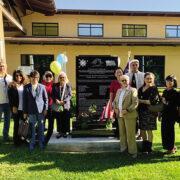MY late boss, Tony de Joya, chairman of Advertising & Marketing Associates, was also, at one time, executive vice-president of Precision Electronics and led the negotiations for a joint venture with Panasonic Corporation (formerly Matsushita Electric). Among the many valuable things he learned from dealing with the Japanese, some lessons could be helpful to Noynoy Aquino, if he cares to listen to unsolicited advice.
According to Tony, there was a time when the electronics giant suffered such a severe business reversal that the chairman himself, Konosuke Matsushita, felt compelled to summon all of his key officers to a meeting. Facing his officers, he did not say a word at first. But he wept. And everyone wept with him.
Finally, Matsushita spoke up: “The time for weeping has ended. The time for work has begun.”
From that day on, Panasonic experienced a resurgence that further strengthened its position as one of the biggest electronics firms in the world.
The history of the company makes no mention of this classic quotation, but it could have been stated in 1964 when profits plummeted and Chairman Matsushita, who had already withdrawn from active management, called for a meeting of the presidents of Panasonics’ sales companies and distributors throughout Japan.
The meeting turned out to be a blaming session at the outset, until Matsushita cut in and declared: “I understand your position, and we will argue no more. Our company is clearly to blame, and, with your assistance, I will try my best to rectify this situation.”
To quote Panasonic’s historical narrative, “The impassioned plea brought a hush to the audience, and then, acknowledging Konosuke’s sincerity, those assembled vowed that they were now ready to work together.
” At the close of the conference, Konosuke personally presented placards to all the assembled presidents, on which he wrote the words, ‘Co-existence and Mutual Prosperity’. After the conference, Konosuke stepped out of retirement to temporarily take over as Director of the Corporate Sales Division, totally revamping the corporation’s sales and distribution system. He reorganized existing sales companies, allowed direct transactions between sales companies and product divisions, and created a credit plan for consumers. With these measures in place, sales gradually began to improve.”
Towards the end of his State of the Nation Address, Aquino was reported to have struggled to hold back his tears. It could have been due to pent-up frustration at the barrage of criticism that he and his government had endured over the past several months in spite of what he may have considered sincere efforts to do a good job as president.
Aquino could learn two lessons from the above anecdote. The first is the lesson of Matsushita’s humility and leadership. In that confrontation among his top corporate officers and the company’s distributors, the chairman could have joined in the blame-tossing and the washing of hands. As the Boss of Bosses, he could have put everyone in his place. He could also have accused some of the critics of trying to sabotage the company and he could have unleashed his fury on them.
But Matsushita chose, instead, to assume responsibility and to ask for everyone’s help in solving the company’s problems.
To take responsibility for flaws. To acknowledge a mistake and be willing to correct it. That is an admirable act of humility. To take command when the ship is sinking. To declare, “The buck stops with me.” To accept crucifixion for the sins of one’s people. That is an act of sterling leadership.
The second lesson that Aquino could learn – if he chooses to – is from the most telling words of the incident: “The time for weeping has ended. The time for work has begun.”
Aquino is said to have held back his tears as he delivered his defense of his administration and as he went on the offensive and excoriated his critics. But neither defense nor offense will solve the many problems that still beset our country. And tears will not do it either.
Omar Khayyam had pithy words for such a situation: “The moving finger writes; and having writ, moves on; nor all thy piety nor wit shall lure it back to cancel half a line, nor all thy tears wash out a word of it.”.
PDAF has happened. It has been struck down by the Supreme Court. But as the smoke settles, there are several high profile officials and their subordinates incarcerated. And many others are being pursued. That’s the good news. The bad news is that the pursuit is perceived as selective and partisan.
Crying will not correct that perception. Only an open, transparent, aggressive, non-selective, non-partisan indictment of all those who wallowed in the pork barrel trough will do it. Aquino can do it. If he chooses to.
DAP has happened. It has been struck down by the Supreme Court. Aquino has argued that good things resulted from the use of its funds. That’s the good news. But the end does not justify the means. That’s the bad news. And even worse news is the allegation that DAP funds were used to pay off those who voted to impeach the Chief Justice and that billions have been set aside for the presidential campaign chest of the Liberal Party.
Aquino’s tears will not correct that negative perception, either. Only a full accounting of funds and where they were used can mitigate the disappointment of the citizenry. Aquino can get it done. If he chooses to.
Indeed, the time for crying has ended. The time for cleaning up the mess and righting the wrong has begun.
This, of course, is a lesson that Aquino’s critics can learn as well. Pointing out the mistakes of the administration is the easy thing to do. Helping find solutions is the hard part.
For sure, there are many who would like to see the Aquino government collapse, so that they can take over and go back to the old ways. These are people who will refuse to see any glimmer of good in what the Aquino government has managed to do against difficult odds.
But there are also many – in media and even in the political opposition – who, while critical of the mistakes that the Aquino government has been making, have offered sound advice, albeit, sometimes given with sarcasm.
These people are not necessarily enemies. And if Aquino is frustrated at all of the brickbats that have been hurled at him, these positive critics are probably just as frustrated at his seeming stubbornness.
What Aquino badly needs to discern is where the criticism ends and where the solid, helpful advice begins.
There is one last lesson that Aquino may want to learn. This is simply to drive home the point that those who have been giving him bad advice, as well as those who have been providing him with questionable data for his SONA may not have his best interests at heart.
The lesson is not from Matsushita but from the tale of The Lone Ranger and his sidekick, Tonto. One day, The Lone Ranger and Tonto found themselves surrounded by Indians. Said the masked hero, grimly, “Tonto, looks like we’re surrounded.”
At this, Tonto replied: “What you mean we?”
* * *




